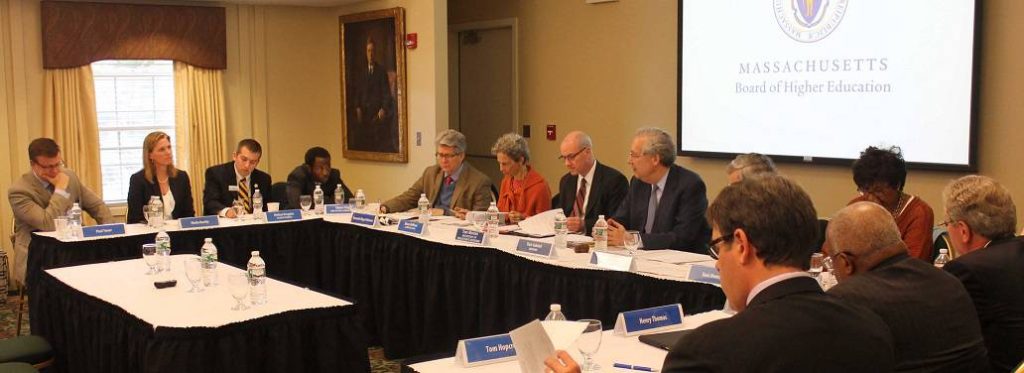Massachusetts education officials voted in June to allow students, beginning as early as this fall, to take a computer science (CS) course, that “includes rigorous mathematical or scientific concepts” and “aligns with the state’s Digital Literacy and Computer Science curriculum,” in place of either a laboratory science course or a mathematics course required under MassCore.
MassCore is a state-recommended program of study intended to align high school coursework with college and workforce expectations. It was developed to increase the likelihood that high school graduates would meet admission requirements for the Commonwealth’s four-year public colleges and universities, as well as improve students’ chances of admission to private colleges.
While CS electives may be available in high schools, the intensive MassCore requirements have often left students without sufficient time in their schedules to take computing, even when there was interest. By including CS as an alternative within MassCore, education officials anticipate more students will choose to take computing courses in high school.
As a member of the Executive Committee of the Massachusetts Board of Higher Education (BHE), I voted in favor of this resolution at our June meeting. The vote we held stemmed from a joint meeting in January of the Board of Elementary and Secondary Education (BESE) and the Board of Higher Education where both boards called for greater access to computer science in high school. During this meeting I advocated on the importance of computer science as a lever of both economic growth and social equity (view my remarks here). MassTLC, a tireless advocate for expanding computer science education, also advocated with the Mass Business Alliance for Education in a statement in support of the resolutions that we subsequently adopted in June.
Looking back on how we got here, the BESE and DHE resolutions in January directed their respective Departments to form a working group to accomplish the following two goals:
- To develop a long-term strategy to enable many more students graduating from Massachusetts public high schools to study CS/computational thinking as part of MassCore, the recommended program of studies in high school.
- To increase the number of students interested in pursuing computer science as a field of study in postsecondary education and, by extension, those students interested in pursuing careers in technology following graduation from a postsecondary institution.
The working group was charged with considering the following:
- Moving CS from use as an “additional core course” in MassCore to allow for a CS course to substitute for other MassCore courses.
- Exploring how a CS component in MassCore might be met through a multi-year, integrated course of study or pathway.
- Ensuring that any CS course or pathway that is incorporated into MassCore is aligned with the 2016 Digital Literacy and Computer Science (DLCS) standards.
- Developing an assessment strategy that provides the opportunity to demonstrate competency in computer science as a means of meeting the high school Competency Determination for purposes of high school graduation.
- Exploring the incorporation of CS into higher education admissions criteria as an incentive for expanded computer science offerings.
- Identifying and addressing barriers to ensuring equitable access to all students to pursue courses in CS and/or digital literacy.
- Exploring alignment of CS with existing math pathways.
The working group concluded that computer science knowledge and skills are necessary for today’s economy in nearly any field, and that all students should have access to CS courses, particularly in high school. Going forward, work must continue to ensure that students have equitable access to CS course-taking while in high school, and to support students pursuing CS course-taking while in college. The Department of Higher Education remains committed to this work and to the ongoing collaboration with the Department of Elementary and Secondary Education to increase access to computing in K-12 and higher education, including work to prepare teachers to teach computer science principles.

